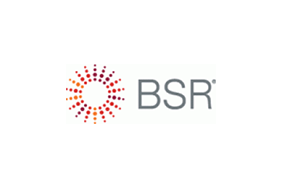Climate Change, Human Rights Top Sustainability Priorities for Business Leaders at BSR Conference
Published 10-22-09
Submitted by BSR
Climate change and human rights are the most significant priorities for business' sustainability efforts in the year ahead, according to the "BSR/GlobeScan State of Sustainable Business Poll 2009" of 274 business leaders from 15 countries who attended the BSR Conference 2009.
The survey also revealed that companies should take two key actions to rebuild the public's trust in business that dropped as a result of the economic crisis: demonstrate positive social and environmental impacts, and innovate for sustainability.
"Innovative companies that embrace the immense opportunities presented by our 'reset world' will be poised for growth and success," said Aron Cramer, President and CEO of BSR. "The survey shows that sustainability is not simply about the green economy. It’s about the whole economy."
Climate Change: Top Priority, Significant Opportunity
Climate change tops the list of "very significant" priorities in the next 12 months (selected by 41 percent of respondents), followed by human rights (32 percent), workers' rights (29 percent), and water availability/quality (26 percent).
Most respondents (44 percent) said "energy efficiency" is the most significant element of their climate strategy, up from 31 percent in a 2007 survey of BSR Conference participants. Respondents also see more significant opportunities than barriers in addressing climate change:
- Seventy percent said that "lowering energy costs and/or other efficiencies" is the most significant business opportunity in addressing climate change, followed by "improving stakeholder relationships" (67 percent), "driving innovation" (65 percent), and "strengthening credibility with consumers" (65 percent).
- The most significant barriers to addressing climate change are "competing strategic priorities" (cited by 49 percent), "short-term financial pressures/recession" (46 percent), followed by "complexity of implementation" (44 percent), and "uncertain/insufficient policy frameworks" (40 percent).
Public Trust and Responsible Business
When asked to name up to two industries that have acted most responsibly in terms of their sustainability efforts in the past few years, respondents most often selected "consumer products/retail" (56 percent) and "information and communications technology" (32 percent), up from 50 percent and 18 percent, respectively, in 2007. At the bottom of the list of responsible industries were "financial services" (1 percent) and "media and entertainment" (2 percent).
Despite the amount of attention it has garnered from policymakers and the media, "reform executive compensation" was cited by only 4 percent of respondents as the action companies should take to rebuild the loss of public trust that occurred as a result of the economic crisis. Nearly 10 times as many respondents said that companies should "create innovative products and business models designed for sustainability" (39 percent) and "measure and demonstrate positive social and environmental impacts" (38 percent) to regain trust.
Optimism and Investment in Sustainable Business
Those surveyed are increasingly optimistic that sustainability will be a core part of business strategy in the years ahead, with majorities expecting increased activity (and no budget cuts) in key areas.
- Nine out of 10 respondents (90 percent) are somewhat or very optimistic that global businesses will embrace sustainability as part of their core strategies and operations in the next five years, which is a jump from the 77 percent who felt that way in a 2008 survey of BSR Conference participants. Within that group, the increase in the number of respondents who are very optimistic was even more dramatic, up from 11 percent in 2008 to 26 percent this year.
- Nearly nine out of ten people (89 percent) said their companies' sustainability budgets would stay the same or increase. In 2008, 31 percent said they expected their budgets to decrease, whereas this year, only 8 percent said they expect a decrease.
- Majorities also said they expect an increase in several key areas of their companies' and organizations' sustainability programs in the year ahead, including the amount of external communications and the amount of internal communications (66 percent each) and more CEO-level engagement on sustainability (50 percent).
"The business leaders gathered at the BSR Conference have confirmed that sustainable business is not just surviving amid the recession-it's thriving," said Cramer.
About BSR
A leader in corporate responsibility since 1992, BSR works with its global network of more than 250 member companies to develop sustainable business strategies and solutions through consulting, research, and cross-sector collaboration. With six offices in Asia, Europe, and North America, BSR uses its expertise in the environment, human rights, economic development, and governance and accountability to guide global companies toward creating a just and sustainable world. Visit www.bsr.org for more information.
About GlobeScan
GlobeScan is a global survey research firm providing strategic advice to companies, multilateral institutions, governments, and NGOs, on reputation, sustainability, and corporate responsibility. The company is a world leader in conducting comprehensive general public and stakeholder survey research in all regions of the world. www.GlobeScan.com.
About the Research
The "BSR/GlobeScan State of Sustainable Business Poll 2009" was conducted from October 5 to 15, and on October 21, 2009, among a sample of 274 corporate responsibility professionals from 15 countries who attended the BSR Conference 2009. The "BSR/Cone Corporate Responsibility in a New World Survey 2008" was conducted November 5, 2008, among a sample of 424 corporate responsibility professionals from 28 countries who attended the BSR Conference 2008. The "BSR/Fleishman-Hillard Corporate Responsibility Survey 2007" was conducted from October 23 to 24, 2007, among a sample of 331 corporate responsibility professionals who attended the BSR Conference 2007.

BSR
BSR
Since 1992, Business for Social Responsibility (BSR) has been providing socially responsible business solutions to many of the world's leading corporations. Headquartered in San Francisco, with offices in Europe and China, BSR is a nonprofit business association that serves its 250 member companies and other Global 1000 enterprises. Through advisory services, convenings and research, BSR works with corporations and concerned stakeholders of all types to create a more just and sustainable global economy. For more information, visit www.bsr.org.
More from BSR

